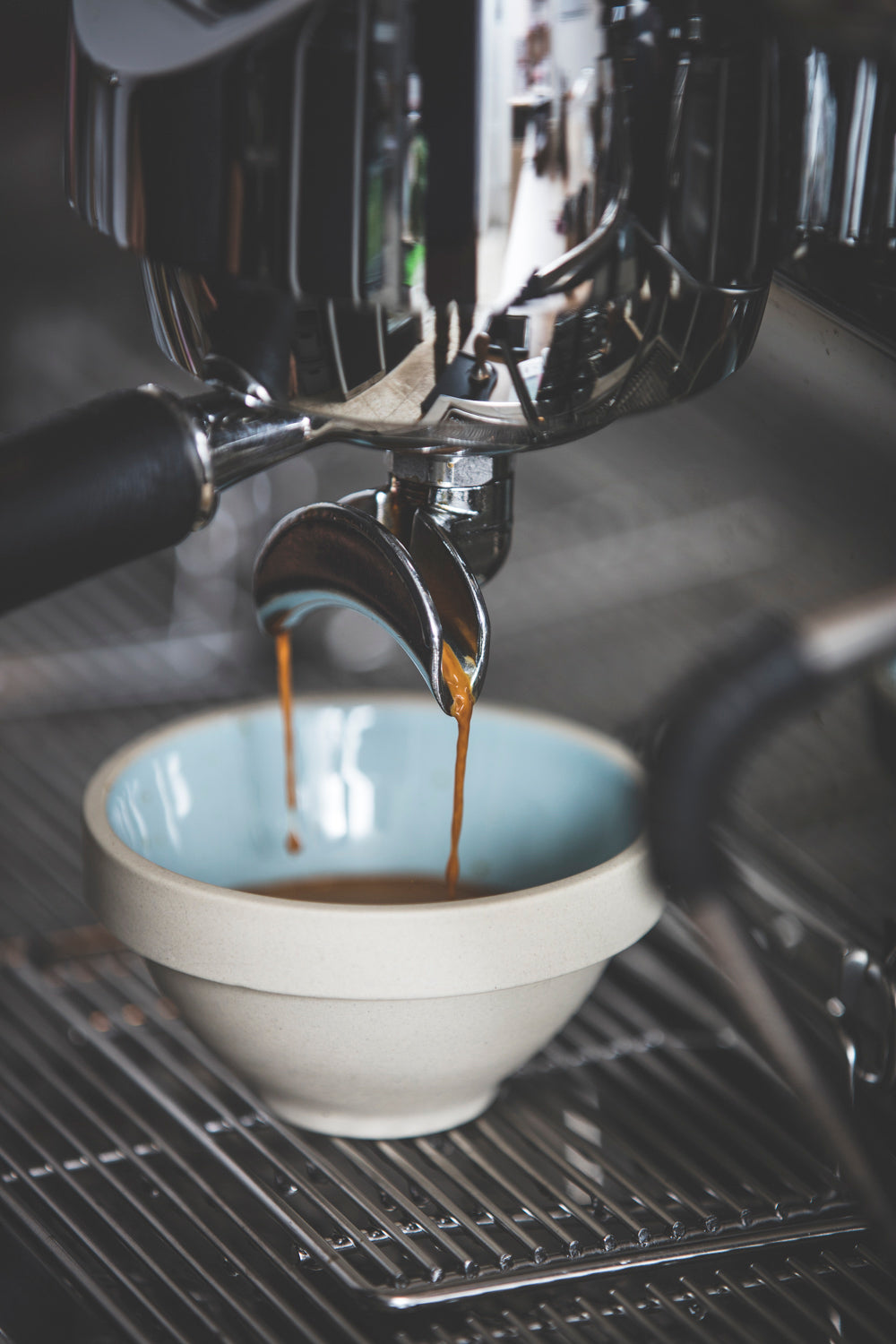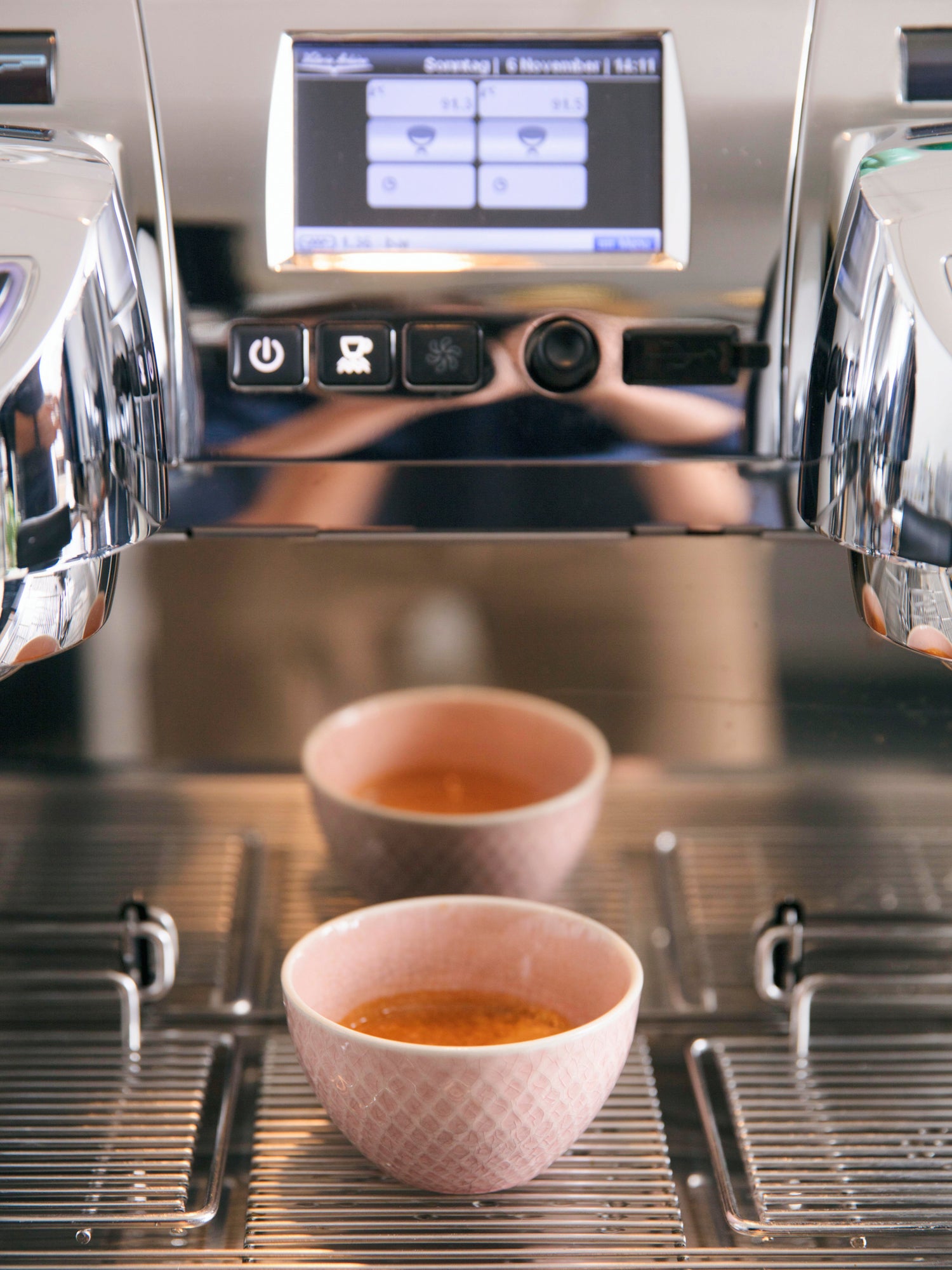As the name suggests, espresso was invented in Italy at the end of the 19th century. At that time, Naples and Milan were considered the centers of coffee culture. But a merchant from Naples found that preparing the traditional coffee took far too long. So he collaborated with the Milanese engineer Luigi Bezzera and tinkered with him on a new preparation method. The two Italians ultimately developed the first espresso machine, which used high-pressure steam to force finely ground coffee in just 30 seconds. Shortly after 1900, this new preparation method conquered Milanese restaurants and from there, the entire world. Espresso and portafilter machines are still produced in Milan today under the Bezzera name.
In Italy, the classic espresso is simply called “caffè.” But this hot drink can be enhanced in many ways with milk and other ingredients. A popular example is the classic cappuccino with foamed milk. Traditionally, the ratio of coffee, milk, and milk foam should be equal. The Viennese Melange, on the other hand, is traditionally prepared with a slightly longer espresso (35-40 ml), more milk, and less milk foam. Espresso also serves as the base for a long shot of espresso and a little hot water, ideally served separately or diluted with it after the espresso has been made. Other popular drinks are cortado, flat white, latte macchiato, and café au lait, which are also based on espresso. As you can see, you can create so many different dishes with espresso. This hot drink is definitely not boring.

